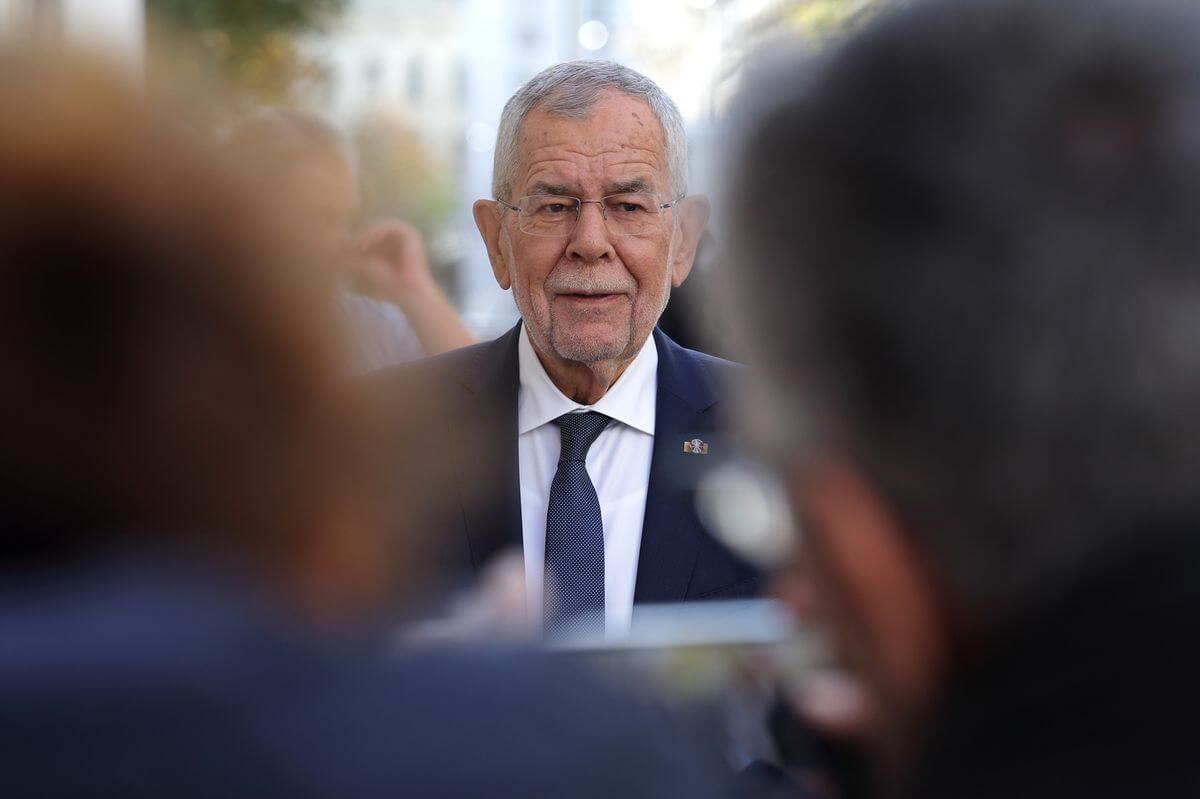Incumbent Austrian President Alexander Van der Bellen secured another six-year term in office after winning a majority of votes in the first round of voting.
Austrian pollster SORA declared the first projection after counting 95% of votes. It said that Van der Bellen had secured 56.1% of the votes with a 1.1% margin of error. The organisation said that while election authorities were yet to count the postal ballots, these predictions have been highly accurate in the past.
A projection by ARGE Wahlen declared similar results, with Van der Bellen’s supporters accounting for 56% of votes. Other pollsters have also reported results in a similar ballpark.
Laut erster Hochrechnung rund 55 Prozent für Alexander #VanderBellen. DANKE! #bpw22 #vdb2022 pic.twitter.com/cA78nxsiCm
— Alexander Van der Bellen (@derkandidat_vdb) October 9, 2022
Election authorities will officially declare the final result on 17 October and Van der Bellen will begin his term on 26 January.
Van der Bellen contested the election against six male opponents. His main competition came from the far-right Freedom Party (FPO), which presented a more challenging fight during the last election in 2016. All other parties except the FPO supported Van der Bellen’s re-election bid even though stood as an independent candidate.
FPO’s Walter Rosenkranz secured 17.9% of the votes, making him Van der Bellen’s biggest election rival. Opponents from other parties received a much smaller vote share. Tassilo Wallentin, Dominik Wlazny, and Gerald Grosz secured 8.39%, 8.23%, and 5.96% votes, respectively. Meanwhile, Michael Brunner from the MFG party, a strong advocate for the anti-vaxx movement, and entrepreneur Heinrich Staudinger respectively received 2.7% and 1.56% of the votes.
BUNDESPRÄSIDENTENWAHL | Sonntagsfrage OGM/Kurier
— Österreich Wählt (@Wahlen_AT) October 1, 2022
Van der Bellen: 58% (-5)
Rosenkranz: 16% (-5)
Wallentin: 9% (NEU)
Wlazny: 8% (+3)
Grosz: 5% (-1)
Brunner: 3% (-2)
Staudinger: 1% (NEU)
Änderungen zur letzten Umfrage vom 15. Juli 2022
Verlauf: https://t.co/pnUYDZKr8V#bpwahl pic.twitter.com/ls2prdNBn4
Celebrating the decision, Van der Bellen said that the vote must be taken “seriously,” as he had secured an “absolute majority” and received more votes than “all other candidates combined.” According to Austrian election laws, if no candidate had secured 50% or more votes in the first round of voting, the top two most popular candidates must face each other in a run-off election.
One of Van der Bellen’s main campaign goals was avoiding a “divisive and hostile” run-off like in 2016. In fact, all former Austrian presidents have successfully claimed an absolute majority in the first round of elections while standing for a second term.
Congratulations to @vanderbellen for your re-election as President of Austria for the next six years. Thanks for serving the people of 🇦🇹 & defending the people of Belarus who are on the frontline against tyranny. We appreciate your support & solidarity in our fight for freedom. pic.twitter.com/xRkx3hlhtF
— Sviatlana Tsikhanouskaya (@Tsihanouskaya) October 10, 2022
While the Austrian president holds a largely ceremonial role, they have far-reaching powers during transition periods between governments and during periods of political instability. The president is also the commander-in-chief of the armed forces and can force the government and the Chancellor to step down.
Pro-European liberal Van der Bellen is the former leader of the Greens party. He became increasingly popular after his role in addressing the 2019 crisis, when the government collapsed after FPO leader and erstwhile Chancellor Sebastian Kurz was forced to resign over a corruption scandal. The incumbent president has also been lauded for his stabilising role during the ongoing energy and inflation crises.
Van der Bellen’s opponents have accused him of passiveness and over-cautiousness. However, his supporters argue that this more measured approach is why he was re-elected, given that he presented himself as “the safe choice in stormy times” and vowed to bring in “stability” and “clarity.”

